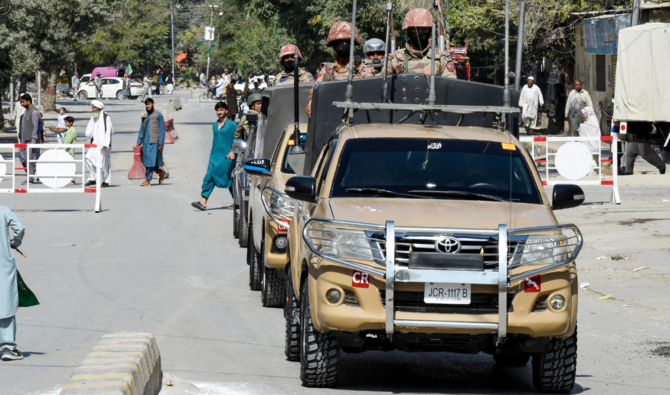ISLAMABAD, PESHAWAR & QUETTA: The World Health Organization said on Friday “fake finger markings” were one of the major factors hampering Pakistan’s polio eradication efforts, as the South Asian country reported the 49th case of the virus this week.
Pakistan, along with neighboring Afghanistan, remains the last polio-endemic country in the world. The nation’s polio eradication campaign has hit serious problems with a spike in reported cases this year that has raised doubts over the quality of vaccination reporting and prompted officials to review their approach to stopping the crippling disease.
Polio, a disease transmitted through sewage which can cause crippling paralysis particularly in young children, is incurable and remains a threat to human health as long as it has not been eradicated. Immunization campaigns have succeeded in most countries and have come close in Pakistan, but persistent problems remain.
“Some of the gaps and issues that were identified during campaigns included fake finger marking and altered campaign modalities mainly in South Khyber Pakhtunkhwa,” WHO spokesperson Maryam Younas told Arab News on Friday in answers to written questions.
Local officials say parents suspicious of mass immunization campaigns have been getting hold of special markers, used by health workers to put a colored spot on the little fingers of children to identify that they have been vaccinated.
The fake finger marking, sometimes done in collusion with health workers, hide the true scale of refusal rates and thus gaps in vaccination.
Provincial authorities in Pakistan’s Khyber Pakhtunkhwa province, where 10 cases have been confirmed this year, and Balochistan, where 24 were reported, also said fake finger markings were an obstacle for eradication efforts.
In August this year, the Balochistan Provincial Emergency Operation Center said it had exposed a nexus between parents refusing polio drops for their children and polio teams involved in fake finger marking. Around 60 cases of fake finger markings were identified in various districts of Balochistan and the teams involved were terminated.
“Fake finger markings, low immunization drives, and malnourished children are three prime causes for this rapid surge in polio cases,” Dr. Aftab Kakar, the provincial team lead for the National Stop Transmission of Polio (N-Stop) in Balochistan, said.
The KP Governor’s Focal Person for polio, Tariq Habib, also said fake finger-marking had led to “decreased trust and effectiveness in vaccination efforts.”
The WHO spokesperson suggested that the targeted vaccination of children was pivotal for achieving success against polio, adding that it was essential to focus on children who were “consistently missed due to operational gaps, vaccine hesitancy, security issues, and boycotts.”
This year, 24 cases of polio have been reported in Balochistan, 13 in Sindh, 10 in Khyber Pakhtunkhwa and one each in Punjab and the federal capital of Islamabad. In the early 1990s, Pakistan reported around 20,000 cases annually but in 2018 the number dropped to eight cases. Six cases were reported in 2023 and only one in 2021.
Pakistan’s polio eradication program began in 1994, and the number of cases has declined dramatically since then. But efforts to eradicate the virus have for years been undermined by opposition from some religious hard-liners, who say immunization is a foreign ploy to sterilize Muslim children or a cover for Western spies. Militant groups also frequently attack and kill members of polio vaccine teams.
In July 2019, a vaccination drive in Khyber Pakhtunkhwa was thwarted after mass panic was created by rumors that children were fainting or vomiting after being immunized.
Public health studies in Pakistan have shown that maternal illiteracy and low parental knowledge about vaccines, together with poverty and rural residency, are also factors that commonly influence whether parents vaccinate their children against polio.
















